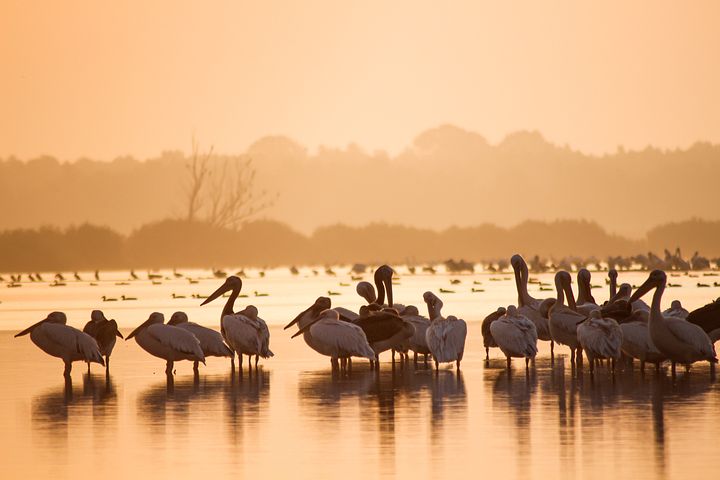World Deltas Under Threat Against Rising Climate Change Impact
News Desk
Islamabad: The UN has acknowledged that all of the world’s deltas are in danger, and that sea level rise and encroachment are harming the ecosystems of the soil and water. Not just the environment is deteriorating; communities, possibilities for employment, and human lives were as well. These factors compelled the rest of the globe to act to ensure their protection.
The diminishing Indus River delta has also come to the attention of the United Nations after agreeing to establish a global convention on all deltas of the world to assure its protection against growing climate change impacts that have serious implications on its nature and habitat.
The development took place after a strong international civil society coalition of experts, academicians, policymakers, and stakeholders unanimously called for an international UN Convention for the Conservation of River Deltas (UN-CCRD) as a follow-up to the UN Human Rights Declaration, UN Geneva Pact, and other agreements to bring into the limelight the fact that all of the world’s major deltas are dying due to the negative effects of climate change and environmental degradation, specifically sea intrusion, sand deposition, and soil erosion.

The African Centre for Climate Actions and Rural Development Initiative (ACCARD), in collaboration with Nigeria’s Bayelsa State Government, the Institute for Environmental Diplomacy and Security at the University of Vermont, the Consortium for Capacity Building at the University of Colorado, Transboundary Water In-Cooperation Network (TWIN), Water Environment Forum-Pakistan, Centre for the Advancement of Public Action (CAPA) Bennington College; Vietnam National University, Hanoi, Vietnam and Centre for Environment and Sustainable Livelihood Projects (CESLP) and others, hosted a side event at the UN Water conference titled ‘Integrative Highland to Ocean (H2O) Action for Disappearing Deltas: Towards a UN Convention on Conserving River Deltas’.
The global convention would help in achieving the UN Sustainable Development Goals (SDGs) to be achieved by 2030, namely SDG-6 demanding ‘Clean Water’, SDG-13 ‘Climate Action’, and SDG-14 ‘Conserving and sustainably using the oceans, seas, and marine resources’.
The speakers and experts discussed deltas starting from the Nigerian Niger Delta, the Indus Delta of Pakistan, the Mekong River, the Colorado, the Nile, and the St. Lawrence transboundary river basins.
Due to rising sea levels, saltwater intrusion from the oceans, quickly melting glaciers, an increase in dams, and altered rainfall patterns in the Highlands, each of these deltas is at distinct risk.
There will be various activities in Delta countries towards achieving the UN Convention for the Conservation River Delta.
The United Nations Convention for the Conservation of River Deltas (UN-CCRD) objectives are to increase knowledge sharing, partnerships, global attention, UN recognition, and community involvement in order to increase resilience and adaptive capacity among delta communities and water stakeholders to climate-related hazards and natural disasters.
It also intends to create a discussion between regional and international stakeholders in order to both find and deliver integrated Highlands to Oceans (H2O) solutions to the expanding water-related problems, especially those made worse by climate change.
Additionally, it attempts to strengthen local capacities in nations through training and capacity building, community data collection, and locally driven, context-sensitive solutions to these difficult issues.

Comments are closed.